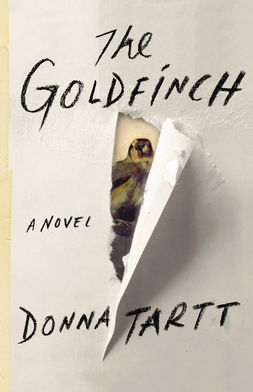
We all (should) know the adage, “the book is much better than the movie.” Of course it is. The books upon which most movies are based are much deeper and richer than the movies ever could be. The Lord of the Rings should serve as an example here – much like the “book” being broken into three volumes (actually, six books if memory serves right), it took three, very long movies (and all later released in some kind of extended version to boot) to come up with anything that could even come close to the depth of the book. And even then, some would say, “far short” (on the other hand, The Hobbit could’ve been done in one, good movie. It’s a children’s book – much simpler and (one would think) more easily adaptable to the big screen).
So, of course, when one seeks to write the screenplay for oh, say, a Pulitzer Prize-winning novel, one would be cautious in how one would go about doing it. As a matter of fact, if one were smart, perhaps one would not make the attempt at all.
Not so, Peter Straughan. He took on the unenviable task of adapting the novel The Goldfinch for the big screen and, of course, he failed. I would like to say “spectacularly,” but perhaps that’s too harsh. But anyone who read the book, then was adventurous (or foolish) enough to waste their time watching the movie (as I did – with the sole intent of seeing how anyone could possibly pull it off) would probably agree – “the book is much better than the movie.”
Except I would say in the case of The Goldfinch, even more so.
I can sum it up in one word – “hollow.” The movie was hollow. It was empty of just about anything that was developed in the book. As a matter of fact (and this caught my eye in the credits at the end), the best we could hope for was a movie simply “based on” the book. Now, while I’m sure this is often the disclaimer that goes at the end of every book-based movie, I’d say in this case it was a bit of a stretch. Not in the events depicted in the movie — if it was in the movie, then it was…somewhat…out of the book — but in the actual content of those events. The main characters of the story had so much deeper and more meaningful motives in their actions and relationships. It would have been disappointing that the movie softened them up so significantly – I’d say even changed them — if I even cared that so much was missing.
Sure, the book ends with quite the “maybe bad things happen for a good purpose” segment – digging deeply into the philosophy of what we were reading – but honestly, how can one even venture to get there in a movie where the characters are so…hollow? [Not to mention the acting being a bit substandard, with the exception of Nicole Kidman, for whom I’ve never cared as an actor, but whose skill was noticeably better than that of the rest of the cast.] There was just way too much that they put into the movie that was rightly based upon the depth of the characters in the book, but could not be understood because of the limitations that come with the shallow brevity of making something into a movie.
I must say this: the book was tremendous. It was especially intense, and the characters were so thoroughly-developed and interesting. The movie? No. Not even close. It was so poorly adapted I would call it nearly unrecognizable to readers of the book. I would even venture to say that, if one who has only read the book were to speak to one who has only seen the movie, they might very well only agree that there was a painting of a bird somewhere in there. Not only do I not recommend the movie, I recommend that you read the book, love it for the masterpiece it is, and leave it at that.

I have been looking for a good book….you’ve given me a good place to start. Thank you!